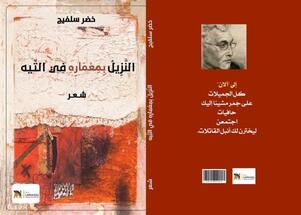-
Egypt is Facing a Curse of Pharaohs or an Islamist Conspiracy?

The last ten days of March saw Egypt suffering a series of serious accidents that caused loss in lives, triggered sentiments of disappointment and pessimism among the Egyptian people, and left a heavy burden on the shoulders of the Egyptian state to handle.
It started on Tuesday, March the 23rd, when the Suez Canal, eastern Egypt, got blocked by a giant container ship that deviated out of its route and got aground at both banks of the canal. The accident caused a maritime traffic jam that kept more than 300 cargo ships unable to pass from the Red Sea to the Mediterranean. The blockage of the Suez Canal, which is the fastest and safest shipping route between Asia and Europe, is disastrous to the whole world. About 30% of world trade volume, transported by container ships, passes through the Suez Canal, every year. Petroleum and crude oil transports represent about 16% of total goods transported via the Suez Canal. On the third day of the blockade, the oil prices worldwide rose by 4%. Some experts, also, expected that if the blockade continues for longer than one month, this may raise the prices of other commodities.
While the Egyptian government got pre-occupied by re-floating the stuck ship and allowing the flow of world trade to resume, a horrible accident took place in Sohag governorate southern Egypt. On Friday, March 26th, two trains collided outside a small village in Sohag causing severe damages to the trains that left 19 people dead and 185 injured. Before the government gets enough time to deal with the consequences of the Sohag train accident, a ten-storey building, inhabited by more than 100 people, in Gesr Suez neighborhood eastern Cairo collapsed on the morning of Saturday, March 27th. The Civil Protection forces have been searching for dead bodies under the wreckage, since then.
The shocked and confused Egyptians attempted to explain the reason for the series of tragedies that hit Egypt, last week, by adopting one of two theories. The first theory is based on the ancient belief that the dead pharaohs can curse the living humans who mess with them. The theory assumes that Egypt is cursed by the pharaoh kings, whose bodies are scheduled to be transported from the old museum in Tahrir Square, Downtown Cairo, to the new National Museum close to the Pyramids, in Giza, in early April. If you believe in pharaoh’s mystical capabilities, you may adopt this theory, too.
The other theory, surprisingly adopted by some prominent Egyptian writers, assumes that the latest accidents are perpetually committed by violent members of the Muslim Brotherhood, in an attempt to distract the state and upsurge public rage, in avenge to Egypt’s reconciliation with Turkey, which threatened the Muslim Brotherhood leaders living abroad. This theory is enhanced by the fact that the talking heads of the Muslim Brotherhood and their supporters launched a huge campaign on social media and other news platforms against the Egyptian state and President El-Sisi, on the background of these accidents.
However, on the positive side, Egypt received messages of support and condolences from all over the world, including from Qatar and Turkey, which Egypt is in the process of diplomatically reconciling with after years of political conflicts and diplomatic boycott. Also, some countries with maritime experience offered to help Egypt with moving the stuck ship, including Turkey, Saudi Arabia, and the United States.
Whether it is a curse of pharaohs or an Islamist conspiracy, the problems will be solved and Egypt will recover and become stronger, with the expertise it acquired through the tough challenge it has gone through. A lot of interesting lessons have been derived and a lot of Egypt’s relations with the world have been put to test. As the Arab saying goes: hard times are the perfect times to learn about yourself and re-evaluate your relations with others.
Dalia Ziada

You May Also Like
Popular Posts
Caricature
BENEFIT Sponsors BuildHer...
- April 23, 2025
BENEFIT, the Kingdom’s innovator and leading company in Fintech and electronic financial transactions service, has sponsored the BuildHer CityHack 2025 Hackathon, a two-day event spearheaded by the College of Engineering and Technology at the Royal University for Women (RUW).
Aimed at secondary school students, the event brought together a distinguished group of academic professionals and technology experts to mentor and inspire young participants.
More than 100 high school students from across the Kingdom of Bahrain took part in the hackathon, which featured an intensive programme of training workshops and hands-on sessions. These activities were tailored to enhance participants’ critical thinking, collaborative problem-solving, and team-building capabilities, while also encouraging the development of practical and sustainable solutions to contemporary challenges using modern technological tools.
BENEFIT’s Chief Executive Mr. Abdulwahed AlJanahi, commented: “Our support for this educational hackathon reflects our long-term strategic vision to nurture the talents of emerging national youth and empower the next generation of accomplished female leaders in technology. By fostering creativity and innovation, we aim to contribute meaningfully to Bahrain’s comprehensive development goals and align with the aspirations outlined in the Kingdom’s Vision 2030—an ambition in which BENEFIT plays a central role.”
Professor Riyadh Yousif Hamzah, President of the Royal University for Women, commented: “This initiative reflects our commitment to advancing women in STEM fields. We're cultivating a generation of creative, solution-driven female leaders who will drive national development. Our partnership with BENEFIT exemplifies the powerful synergy between academia and private sector in supporting educational innovation.”
Hanan Abdulla Hasan, Senior Manager, PR & Communication at BENEFIT, said: “We are honoured to collaborate with RUW in supporting this remarkable technology-focused event. It highlights our commitment to social responsibility, and our ongoing efforts to enhance the digital and innovation capabilities of young Bahraini women and foster their ability to harness technological tools in the service of a smarter, more sustainable future.”
For his part, Dr. Humam ElAgha, Acting Dean of the College of Engineering and Technology at the University, said: “BuildHer CityHack 2025 embodies our hands-on approach to education. By tackling real-world problems through creative thinking and sustainable solutions, we're preparing women to thrive in the knowledge economy – a cornerstone of the University's vision.”
opinion
Report
ads
Newsletter
Subscribe to our mailing list to get the new updates!






















